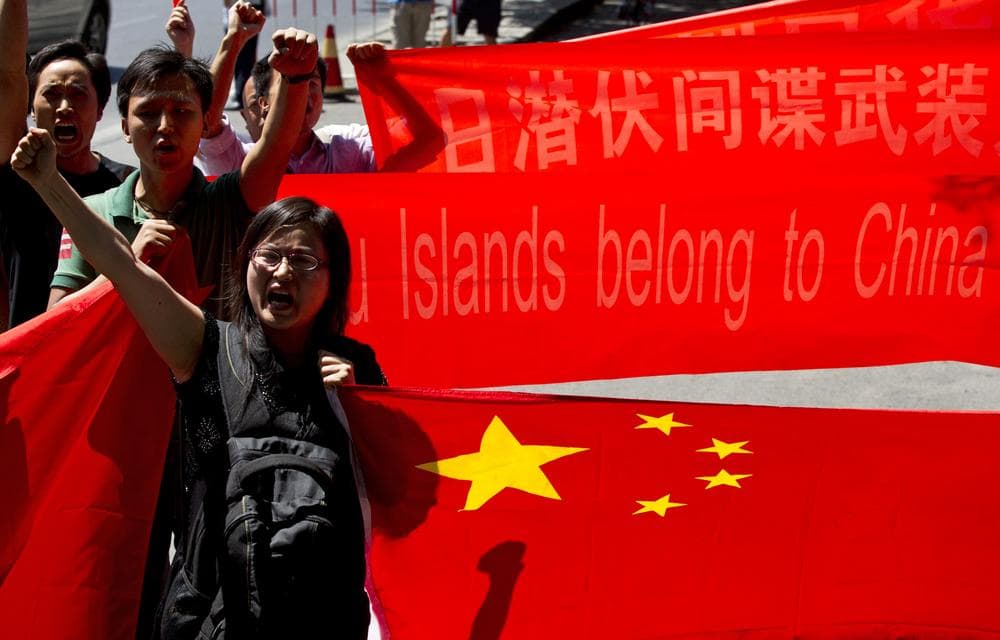Advertisement
High Sea Showdown
ResumeHistory, blue ocean, and China. We look at the high-seas showdown between China and its neighbors over the South China Sea and more.

Way out across the Pacific, a long way from “legitimate rape” and American political campaigning, there’s a high stakes ocean real estate fight going on in the South China and East China Seas. A string of impassioned quarrels over history and resources and sovereignty that could pull the United States onto dangerous terrain with the world’s rising superpower, China.
China makes wide claims over ocean turf and resources far from the mainland. Vietnam, the Philippines, Indonesia, Japan and more disagree. And it is fired up right now.
This hour, On Point: America, the Pacific, and the high seas showdown off China.
-Tom Ashbrook
Guests
Keith Bradsher, Hong Kong bureau chief for the New York Times.
Bonnie Glaser, senior fellow, Freeman Chair in China Studies at the Center for Strategic and International Studies.
Nong Hong, post-doctoral fellow, China Institute, University of Alberta.
Pek Koon Heng, professor of international relations at American University.
Graham Allison, director of the Belfer Center for Science and International Affairs and Douglas Dillon Professor of Government at Harvard's John F. Kennedy School of Government.
Photos
From Tom's Reading List
New York Times "Anti-Japanese protests spread across China over the weekend, and the landing of Japanese activists on a disputed island on Sunday sharply intensified tensions between the two countries."
Wall Street Journal "Since World War II, despite the costly flare-ups in Korea and Vietnam, the United States has proved to be the essential guarantor of stability in the Asian-Pacific region, even as the power cycle shifted from Japan to the Soviet Union and most recently to China. The benefits of our involvement are one of the great success stories of American and Asian history, providing the so-called second tier countries in the region the opportunity to grow economically and to mature politically."
Foreign Policy "This is more than mere posturing. In July, China's East Sea Fleet conducted an exercise simulating an amphibious assault on the islands. China's leaders are clearly thinking about the unthinkable. And with protesters taking to the streets to smash Japanese cars and attack sushi restaurants, their people may be behind them. So who would win the unlikely prospect of a clash of titans in the Pacific: China or Japan?"
This program aired on August 23, 2012.